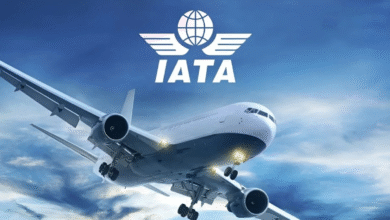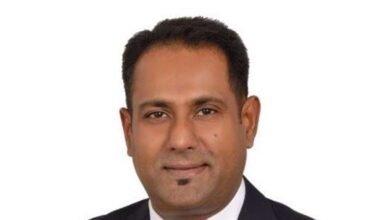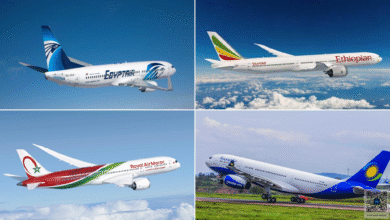Dr. Ghislain Onomo Onomo : « The development of Africa makes it ready to host major sports events »
Dr. Ghislain Onomo Onomo, a sports economics expert, analyzes the impact of international sports events on the development of sports in Africa and the economic opportunities they generate for the continent.

Dr., in the next two years, Africa will host the first World Cycling Championships in Rwanda, the fifth edition of the Basketball Africa League (BAL) in 2025, and the 2026 Youth Olympic Games in Senegal. What does this rush of international sports events towards Africa make you think?
If we can talk about a rush of international sports towards Africa in the next two years, as you say, considering the number of sports events organized on the continent, something that almost never happened before, let us not forget that Africa has already hosted a football World Cup in South Africa in 2010, which is quite significant. This strong return of major sports event organizers to the continent shows that Africa has great organizational potential, a diversified and increasingly numerous youth sports community.
Although the limiting factor for African countries in their desire to host international sports events largely lies in the number and quality of their sports, health, and communication infrastructures, over time, development progresses, and African countries are building infrastructures. This is reducing their limitations in terms of the capacity to host these major sports events. In other words, over the years, the number of international sports events held in Africa will certainly increase, which can only be good news for the entire African continent.
Can we expect these events to boost sports in Africa and raise its contribution to the continent’s GDP to 8% as forecasted by the World Bank?
Organizing international sports events could increase sports’ contribution to 8% of GDP, according to the World Bank’s forecasts

Globally, the sports economy has been doing well for the past twenty years, with an average growth of 5%, corresponding to 2% of GDP. Unfortunately, Africa is lagging behind with only 0.5%, which was not the case a few years ago, indicating that the progress is real, although slow. Organizing international sports events is an opportunity to achieve this target set by the World Bank.
Every time an international sports event is organized in an African country, it involves building various infrastructures in sufficient quantity and quality to international standards. The economic impacts of each international sports event organized in Africa are diverse. Economically, they are not always immediately apparent, even though they are real. For example, in their 2021 publication by Dinimber & Larimber Editions in Yaoundé, Cameroon, titled « Successfully Organizing Sports Competitions in Africa: The Case of the Africa Cup of Nations Football Tournament », Onomo, Onomo G.M., Saïdou V., Bakena E. explored several subjects, including « analyzing the consumption injection of visitors to the 2016 Women’s Africa Cup of Nations (CAN) in Cameroon. »
It turns out that the 8,410 visitors recorded for a duration of fifteen days spent a total of just over 5 billion CFA francs, or nearly 8 million USD. This amount was injected into the local economy of the cities (Yaoundé, Douala, Bafoussam, Garoua, and Limbe) that hosted the competition. This amount could have been higher if timely incentives had been applied to attract visitors to Cameroon. This example clearly shows that the regular organization of international sports events by African countries can only contribute to boosting the sports economy on the continent.
In its January 2024 edition on the African economy, the French Development Agency (AFD) reminds us that as part of its strategy « more investments, more impact, » FIFA invested 2.8 billion USD, including 717 million in Africa, from 2016 to 2022. Do performances in Africa reflect this level of investment?
The poor performance of African national football teams reflects the fact that many efforts are still needed to improve them. So, to some extent, these performances mirror FIFA’s investment.
However, it must be emphasized that this level of investment is already significant, considering the figures you mention, knowing that parameters other than sports results are taken into account by the global football governing body when distributing the available funds. We must also consider the political will in African countries to invest in the long-term development of football, as issues of corruption and embezzlement of funds are often mentioned in the management of sports federations.
Thus, during the FIFA scandal a few years ago, it was demonstrated that some of the money sent by FIFA to the federations returned to FIFA sometime later to buy the silence of certain decision-makers. The question, therefore, is whether the amount of money declared by FIFA was actually used for the development of African football? However, given the 54 federations in Africa and the massive needs observed in African football, we believe that FIFA should increase its level of investment in Africa.
Considering that, of the 2.958 billion USD in broadcasting revenue FIFA earned in 2022, Sub-Saharan Africa contributed 3%, can we say that, overall, the sports economy in Africa also suffers from a promotion deficit?
Sports promotion is an industry that Africa is gradually mastering
Indeed, the sports economy in Africa is still in its infancy. The statistical data speaks for itself: 3% of the global sports economy! This reflects the fact that the culture of sports promotion is still facing significant gaps on the continent. The live broadcast of sports events remains very expensive and requires advanced equipment that media outlets, both public and private, in Africa, especially south of the Sahara, do not always have. Hence, we understand why broadcasting sports events is not straightforward in Africa, even for national team matches.
In developed countries, sports business is a whole industry. This is why a new type of economy has been set up, namely professional sports economics. This allows for better management of professional football leagues, which have become television-dependent in recent decades. This underscores the significant role that the financial returns from broadcasting sports events play in the sports economy elsewhere.
Morocco, 4th in the last football World Cup, South Africa, world rugby champions for the second time, Francis Nganou, world MMA champion. Could these performances help diversify sports and boost the related economy?

The increasingly positive sports performances of African countries, not only in football but also in other sports, can only encourage the diversification of sports practices in Africa and their development. If each sport in which an African country excels is well organized on the continent and attracts international competitions, sports in general will undoubtedly be boosted. Moreover, various champions and leading sporting nations according to the disciplines earn money internationally and can invest in their respective countries. Building quality and sufficient sports infrastructure is a key factor in encouraging the practice of sports in a particular discipline.
If champions invest in their sports to train young talents, and if sports federations, through states, organize international competitions, sports will experience real diversification and a boosted economy.
What strategies do you recommend for Africa to attract more funding from the sports world?
A political will to improve sports governance will strengthen Africa’s credibility with banks and international sports event partners
For Africa to capture more funding from the sports world, we first suggest that there be a genuine political will in African states to see sports develop through good organization, proper structuring, and efficient functioning of sports organizations that favor their professionalization. Then, we advocate for the implementation of good governance practices within our sports organizations. Managing the funds allocated to sports must be free from issues such as corruption, embezzlement of public funds, rigged elections, and anti-democratic electoral processes. Local authorities must ensure that federations are led not by mere managers but by leaders. The good organization and functioning of our sports organizations will inspire confidence in investors and attract them in greater numbers with significantly higher amounts.
What roles can governments and banks play in promoting sports in Africa?
They are of several kinds. First, we think of providing substantial grants, followed by systematic management checks to ensure that money allocated to sports is used solely for its development. Banks should facilitate access to credit for sports organizations at low-interest rates to help realize their projects. Governments should show genuine political will to see sports develop in their respective countries. For this, they must ensure the transparent management of resources within sports organizations.
What about training?
The example of Morocco, semi-finalist in the 2022 World Cup in Qatar, shows that Africa can compete with the best internationally
Here, the responsibility of governments is paramount. Indeed, we believe that they must create quality training schools in sufficient quantity and equitably distributed across the entire territory, ensuring the quality of the graduates. It then falls to the federations to use these trained individuals to form the technical staff of their national teams. This should help reduce the reliance on foreign labor, particularly from the West, whose expenses burden our countries’ budgets. Recent examples such as Senegal, Africa Cup of Nations champion in 2021 in Cameroon, Côte d’Ivoire winning the CAN at home in 2024, and Morocco, semi-finalist in the 2022 FIFA World Cup in Qatar, convince us that Africa has talent that can proudly represent the continent in international competitions.
As we suggested for the promotion of sports, banks should offer sports center promoters and sports schools loans with long repayment periods and preferential rates to favor the training of as many young athletes as possible, as well as in the ever-growing sports professions, whose importance is undeniable.







